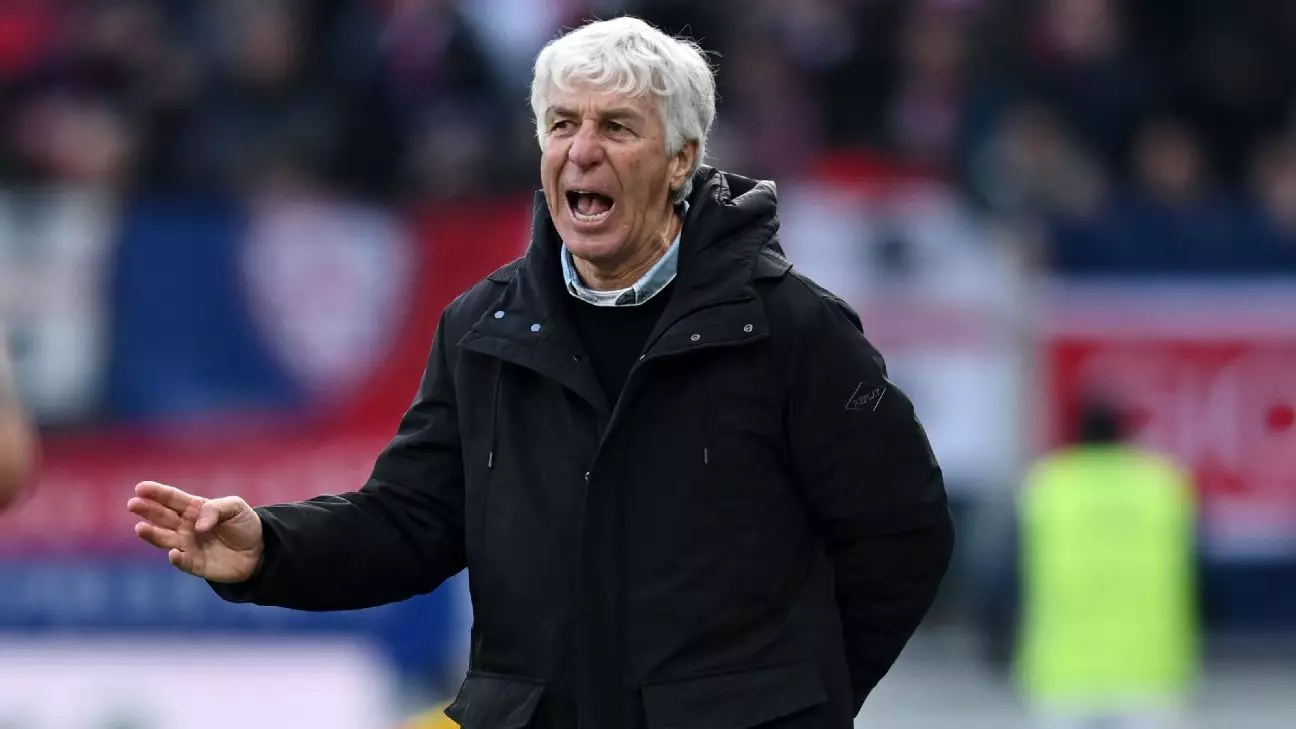Recent incidents within sports often shine a light on how communication between players and coaches can significantly affect morale and dynamics within a team. A notable case emerged following Atalanta’s disappointing exit from the UEFA Champions League, which led to a heated exchange between coach Gian Piero Gasperini and striker Ademola Lookman. Following their 3-1 loss to Club Brugge that culminated in a 5-2 aggregate defeat, Gasperini made a comment that sparked controversy. He stated that Lookman is “one of the worst penalty takers” he’s ever witnessed, a remark that immediately drew ire from the player, who felt marginalized and disrespected by his coach’s public critique.
Gasperini’s comment about Lookman’s penalty-taking skills underscores a larger issue in professional sports: how direct criticism can influence player confidence and team cohesion. Tactically, the timing of revealing such opinions is crucial. Lookman, who was Atalanta’s key player last season, had already struggled during the match, and his penalty miss seemed to amplify the team’s woes. However, Gasperini suggested that Lookman should not have even attempted the penalty given the presence of more qualified penalty takers on the pitch. This rejection of autonomy may lead to feelings of inadequacy, particularly for a player who had already achieved considerable success.
Public statements can have reverberating effects within a sports team. Following Gasperini’s comments, Lookman articulated that he found the remarks “deeply disrespectful.” The public nature of critique can amplify its impact, often leading players to question their role within the squad. Gasperini attempted to downplay the situation, stating that it was never his intention to offend Lookman, and referenced a similar incident in a different match to illustrate that criticism should not be viewed in isolation. However, emphasizing an example from another game might not effectively mitigate the feelings of a player who believes he has been unjustly singled out.
As the team prepares for an upcoming match against Empoli, it is vital for Gasperini and Lookman to mend their rapport and maintain team morale. The coach’s public acknowledgment of Lookman’s feelings is a good first step, but actions often speak louder than words. How Gasperini navigates this relationship moving forward can significantly impact not only Lookman’s performance but also the overall atmosphere within the squad.
Gasperini’s experience in coaching and insight into team dynamics should guide his future approach, emphasizing supportive communication rather than direct criticism that could undermine player confidence. As teams navigate the emotional rollercoaster that is competitive sports, finding a balance between constructive feedback and individual player support remains a perpetual challenge for coaches and management alike. Ultimately, successful navigation of such situations can lead to a stronger, more resilient team capable of overcoming pitfalls on the road to success.

